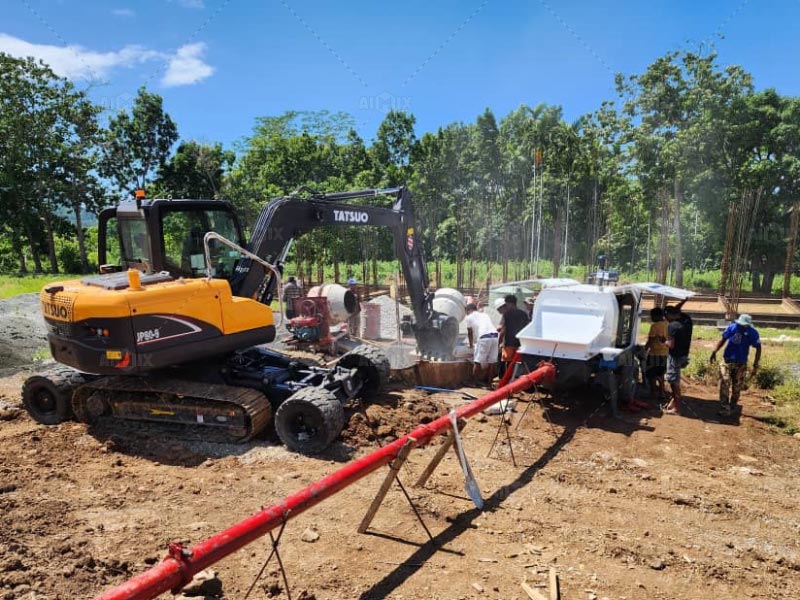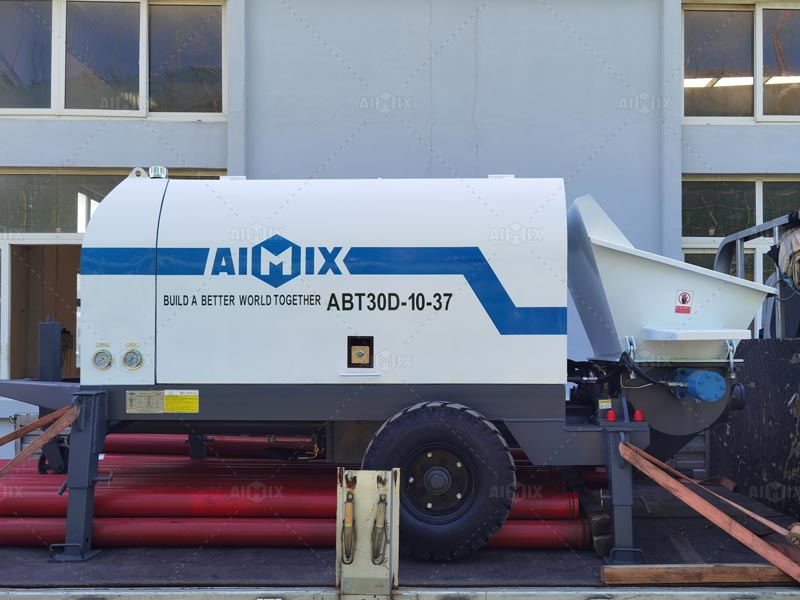When choosing the right equipment for your construction business, selecting the right concrete pump is key to ensuring the success of your projects. The concrete trailer pump is a highly effective and versatile piece of machinery, designed to transport and deliver concrete efficiently. However, to make an informed decision, it’s essential to understand its critical specifications. In this article, we will explore the important specifications to consider when purchasing a concrete trailer pump.
Key Specifications to Consider for a Concrete Trailer Pump
A concrete trailer pump(bomba estacionaria de concreto) offers numerous benefits, including portability, ease of use, and cost-efficiency for medium to large-scale projects. To ensure you get the most out of your concrete trailer pump, you need to carefully evaluate the following specifications:

1. Pumping Capacity
The pumping capacity of a concrete trailer pump is one of the most important factors to consider. This specification refers to the amount of concrete the pump can deliver per hour. It is typically measured in cubic meters per hour (m³/h). The higher the pumping capacity, the more concrete the pump can deliver, which is ideal for larger projects requiring significant amounts of concrete.
For smaller projects, a pump with a lower capacity (around 20-30 m³/h) may suffice. However, for large-scale projects, a pump with a higher capacity (50 m³/h or more) will be necessary to ensure that concrete is delivered efficiently and in the required quantity.
2. Maximum Delivery Pressure
The maximum delivery pressure of the concrete trailer pump indicates the force at which the pump can push the concrete through the delivery line. It is typically measured in megapascals (MPa) or bar. A higher delivery pressure ensures that the pump(bombeadora de concreto) can push the concrete over long distances or to elevated areas, such as high-rise buildings or deep foundations.
Generally, concrete pumps come with pressures ranging from 10 to 25 MPa, depending on the specific model. Higher delivery pressure is essential for larger projects that require concrete to be delivered over long distances or to higher elevations. Be sure to select a pump with the appropriate pressure for the complexity of your project.
3. Maximum Horizontal and Vertical Reach
Another important specification to consider is the maximum horizontal and vertical reach of the pump. This specification determines how far the concrete can be pumped from the pump to the job site. The reach will depend on the type of pump and its setup, as well as the delivery pipes and hoses that are attached to the pump.
If your project involves pouring concrete at great heights or across a large distance, a pump with extended reach will be essential. Concrete trailer pumps can have a horizontal reach of up to 500 meters and a vertical reach of up to 150 meters, depending on the model and configuration.
4. Power Source and Engine Type
Concrete trailer pumps of Aimix Group are typically powered by either diesel or electric engines. The choice between diesel and electric depends on the project location and the availability of power sources.
Diesel-powered pumps are commonly used on remote job sites where electricity may not be readily available. These concrete pumps are typically more powerful and can handle larger pumping capacities.
Electric-powered pumps are often preferred for urban job sites where a consistent power source is available. They are quieter and more environmentally friendly than diesel pumps, but may be less powerful and have a lower capacity than their diesel counterparts.
The engine power, typically measured in horsepower (HP), directly impacts the efficiency and capacity of the pump. It’s essential to choose an engine that can meet the demands of your specific projects.
5. Hopper Capacity
The hopper capacity refers to the size of the container where concrete is loaded before it’s pumped. A larger hopper capacity allows the pump to carry more concrete, reducing the frequency of refilling and making the operation more efficient.
Hopper capacities can range from 200 liters to over 500 liters, depending on the model of the concrete trailer pump. A larger hopper capacity is beneficial for larger projects, as it reduces downtime between batches of concrete. However, for smaller projects, a smaller hopper may be sufficient.
6. Delivery Line Diameter
The diameter of the delivery line (pipes or hoses) is another specification that affects the pump’s performance. Larger diameter lines allow for faster and more efficient delivery of concrete, especially when pumping over long distances or to high elevations. Smaller diameter lines may be suitable for shorter distances and smaller projects.
Typically, concrete trailer pumps use delivery lines with diameters ranging from 100 mm to 150 mm. The diameter should be selected based on the specific requirements of the project, such as the distance the concrete needs to be pumped and the volume of concrete required.

Additional Considerations When Buying a Concrete Trailer Pump
In addition to the specifications mentioned above, there are several other factors you should keep in mind when purchasing a concrete trailer pump:
1. Maintenance and Durability
Concrete trailer pumps are robust machines that require regular maintenance to keep them running smoothly. When choosing a concrete pump for sale, look for one that is built with high-quality materials and designed for easy maintenance. Regular maintenance ensures that the pump will last longer and perform optimally on your job sites.
2. Ease of Operation
Some concrete trailer pumps come with automated features or remote control options, making them easier to operate. These features can enhance operator safety and reduce the risk of errors. Make sure the pump you choose is user-friendly and can be easily operated by your team.
3. Price and Budget
As with any major investment, the concrete pump price(venta de bomba de concreto) is a significant consideration. The price of concrete trailer pumps can vary depending on the specifications, brand, and model. It’s important to set a budget and choose a pump that fits within your price range while still meeting your project’s needs.
Conclusion
Understanding the important specifications of a concrete trailer pump will help you make a well-informed decision when purchasing a concrete pump for sale. Factors such as pumping capacity, delivery pressure, reach, engine type, and hopper capacity are essential to ensuring the pump meets the needs of your construction projects. By evaluating these specifications carefully, you can choose a concrete trailer pump that will boost your business’s efficiency, reduce costs, and improve overall project delivery.